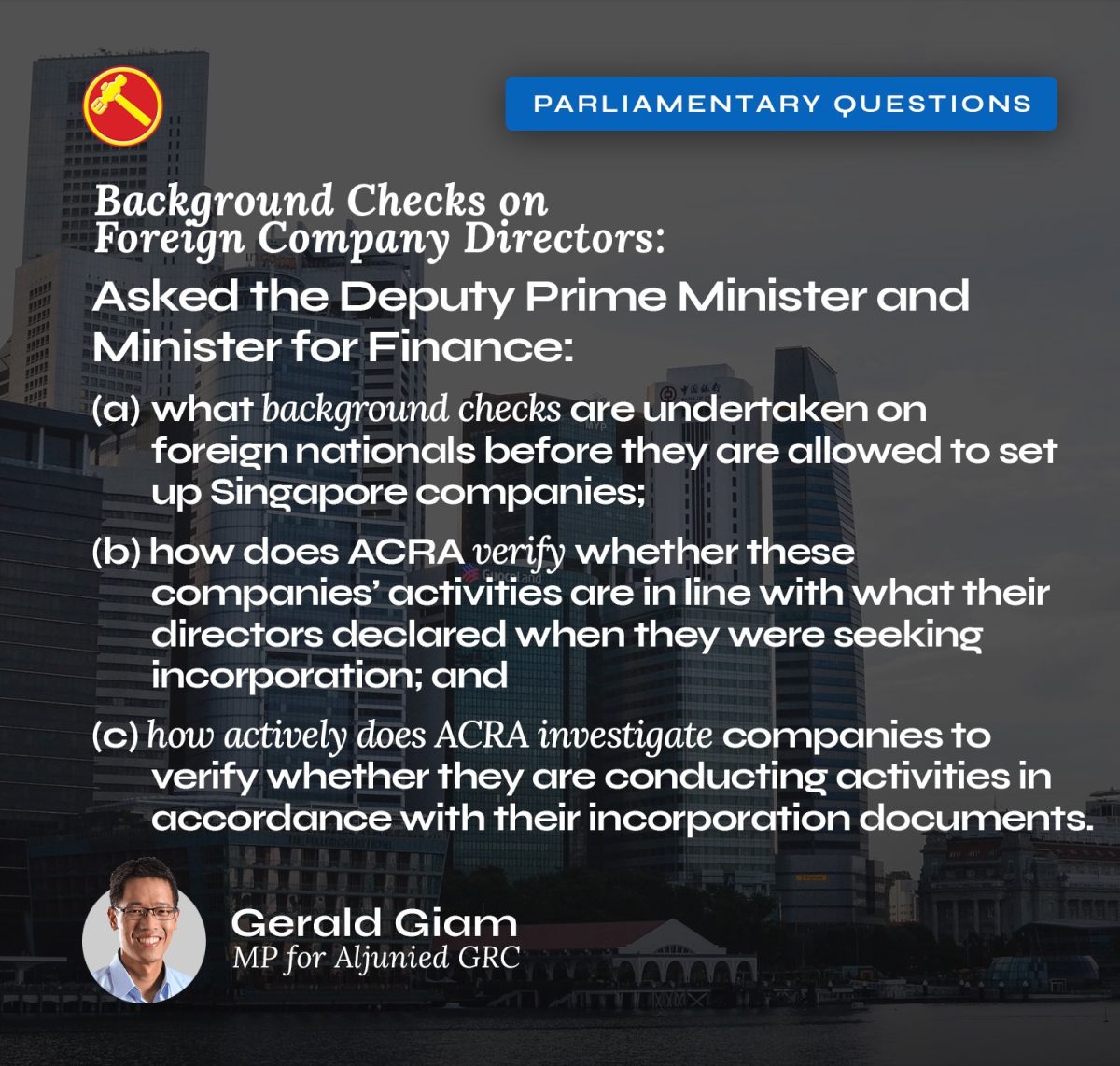In March, Justin Sun, a China national who founded BitTorrent Foundation in Singapore, was sued by the US Securities and Exchange Commission (SEC) following allegations of selling unregistered securities, fraud and market manipulation. Sun’s BitTorrent was registered in Singapore under the business activities of “IT and Computer Service Activities,” which greatly differs from the offences his company has been alleged to have committed (i.e. the fraudulent issuance and sale of crypto assets).
I am concerned that foreign nationals could take advantage of the ease of setting up companies in Singapore, so as to use Singapore as a base to boost their reputations and subsequently conduct fraudulent activities. With this concern in mind, I asked the Deputy Prime Minister Lawrence Wong to provide information on the types of background checks undertaken on foreign nationals before they are allowed to set up Singapore companies.
I also asked how the Accounting and Corporate Regulatory Authority (ACRA) verifies whether these companies’ activities are conducted as stated in their applications.
This is my question and DPM Wong’s reply on 4 July 2023:
Mr Gerald Giam Yean Song asked the Deputy Prime Minister and Minister for Finance (a) what background checks are undertaken on foreign nationals before they are allowed to set up Singapore companies; (b) how does ACRA verify whether these companies’ activities are in line with what their directors declared when they were seeking incorporation; and (c) how actively does ACRA investigate companies to verify whether they are conducting activities in accordance with their incorporation documents.
Mr Lawrence Wong: Foreign nationals based overseas must engage the services of an Accounting and Corporate Regulatory Authority (ACRA)-Registered Filing Agent (RFA) to set up Singapore companies. RFA is a professional services firm, such as a law firm, accounting firm or corporate secretarial firm. RFA is responsible to conduct customer due diligence, including verifying identity and background information, confirming the veracity and adequacy of documents and obtaining beneficial ownership information. They are also required to perform ongoing transaction monitoring on their customers and their companies’ business activities after incorporation, to ensure that the activities are consistent with the RFA’s knowledge of the customer, business and risk profile. They must report any suspicious transactions to the Police.
In addition, ACRA will investigate if it receives information that a company is not conducting activities in line with what was declared at incorporation. The company will be referred to the Police if it is suspected to be engaging in illegal activities. To facilitate this, ACRA also makes publicly available much of the information lodged by companies. This helps to ensure that members of the public accessing this information can report any discrepancies to ACRA.
Should there be any indication of false filings, ACRA will take enforcement action against the RFA. Persons who have knowingly provided false or misleading information to ACRA may be subject to fines or imprisonment.
Source: Singapore Parliament Reports (Hansard)
Photo by Esaias Tan on Unsplash
